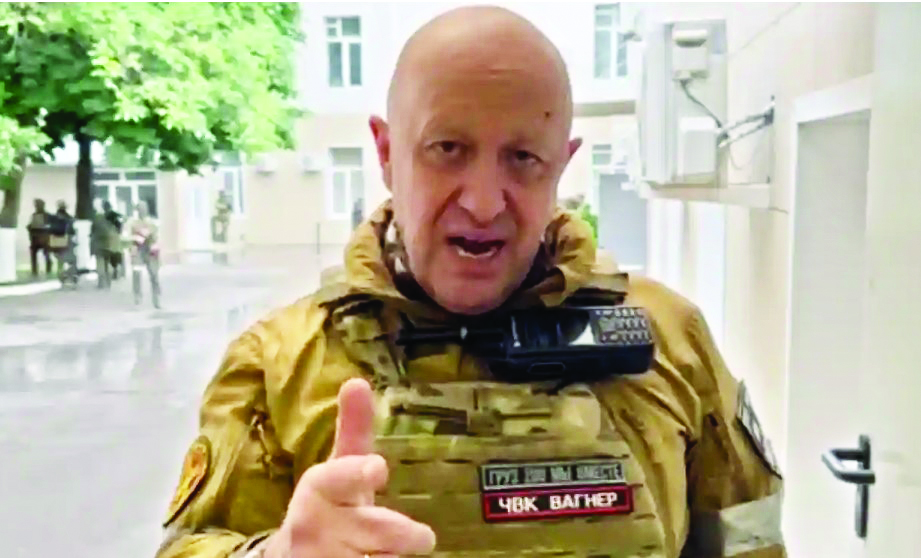Wagner chief Prigozhin is in Russia: Belarus President

Minsk: The mercenary leader who led a short-lived mutiny against the Kremlin is in Russia and his Wagner troops are in their field camps, the president of Belarus said on Thursday, raising new questions about the deal that ended the extraordinary challenge to President Vladimir Putin’s rule.
Belarusian President Alexander Lukashenko’s claim could not be independently verified, and the Kremlin refused to comment on Yevgeny Prigozhin’s whereabouts.
It was not clear if travelling to Russia would violate the deal, which allowed the Wagner chief to move to Belarus in exchange for ending the rebellion and a promise of amnesty for him and his troops.
Few details of the agreement brokered by Lukashenko have emerged. Last week, Lukashenko said the mercenary leader was in Belarus.
Russian media later reported he was seen at his offices in St. Petersburg, a sign that the deal may have allowed him to finalise his affairs in Russia. On Thursday, Lukashenko told international reporters that the mercenary leader was in St. Petersburg and Wagner’s troops were in their camps.
He did not specify the location of the camps, but Prigozhin’s mercenaries fought alongside Russian forces in eastern Ukraine before their revolt and also have bases on the Russian territory.
Asked about where Prigozhin is, Kremlin spokesman Dmitry Peskov refused to comment, but reaffirmed that the deal that ended the mutiny envisaged his move to Belarus.
Lukashenko said his government offered Wagner, a private military contractor that has sent troops around the world to fight for Russia’s interests, the use of Belarusian military camps but the company had not made a final decision.
He also said that Prigozhin has been given back the cash and weapons that were confiscated by Russian authorities.
Russian online newspaper Fontanka posted videos and photos of Prigozhin’s opulent mansion in Russia’s second-largest city and some personal items.
It also published a collection of selfies that showed him posing in various wigs and foreign uniforms, an apparent reflection of Wagner’s deployments to Syria and several African countries.
Asked if Prigozhin and his mercenaries would eventually move to Belarus, Lukashenko answered evasively that it would depend on the decisions of the Wagner chief and the Russian government.
The Belarusian leader said he doesn’t think the mercenaries’ presence in Belarus would lead to the destabilisation of his country and said any Wagner troops there would be required to sign a contract with Belarusian authorities that would outline conditions and limitations of their actions.
He dismissed the suggestions that the mercenaries could attack Ukraine from Belarusian territory, which Russian troops used as a staging ground ahead of their invasion of Ukraine in February 2022.
Moscow has also maintained military presence in Belarus. Prigozhin’s mercenaries quickly swept through the Russian city of
Rostov-on-Don.



